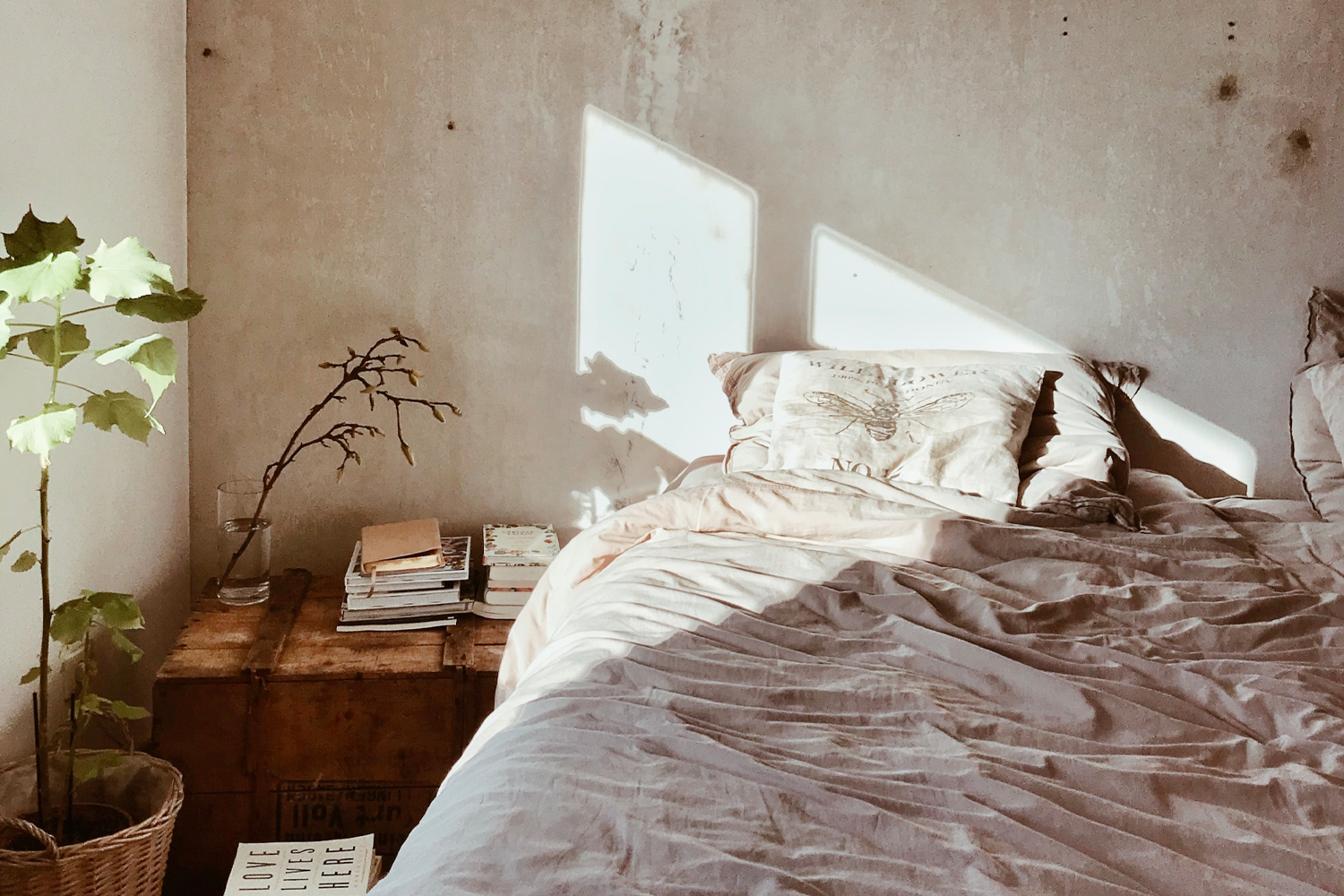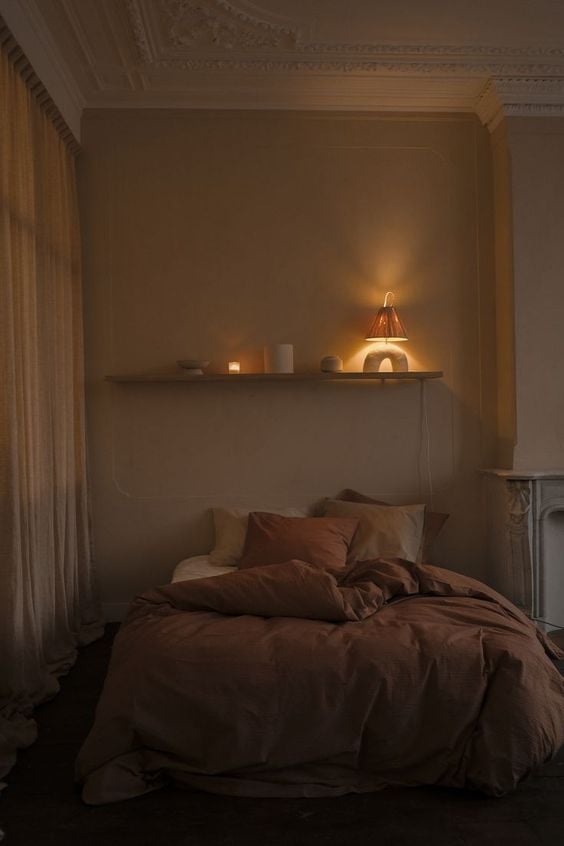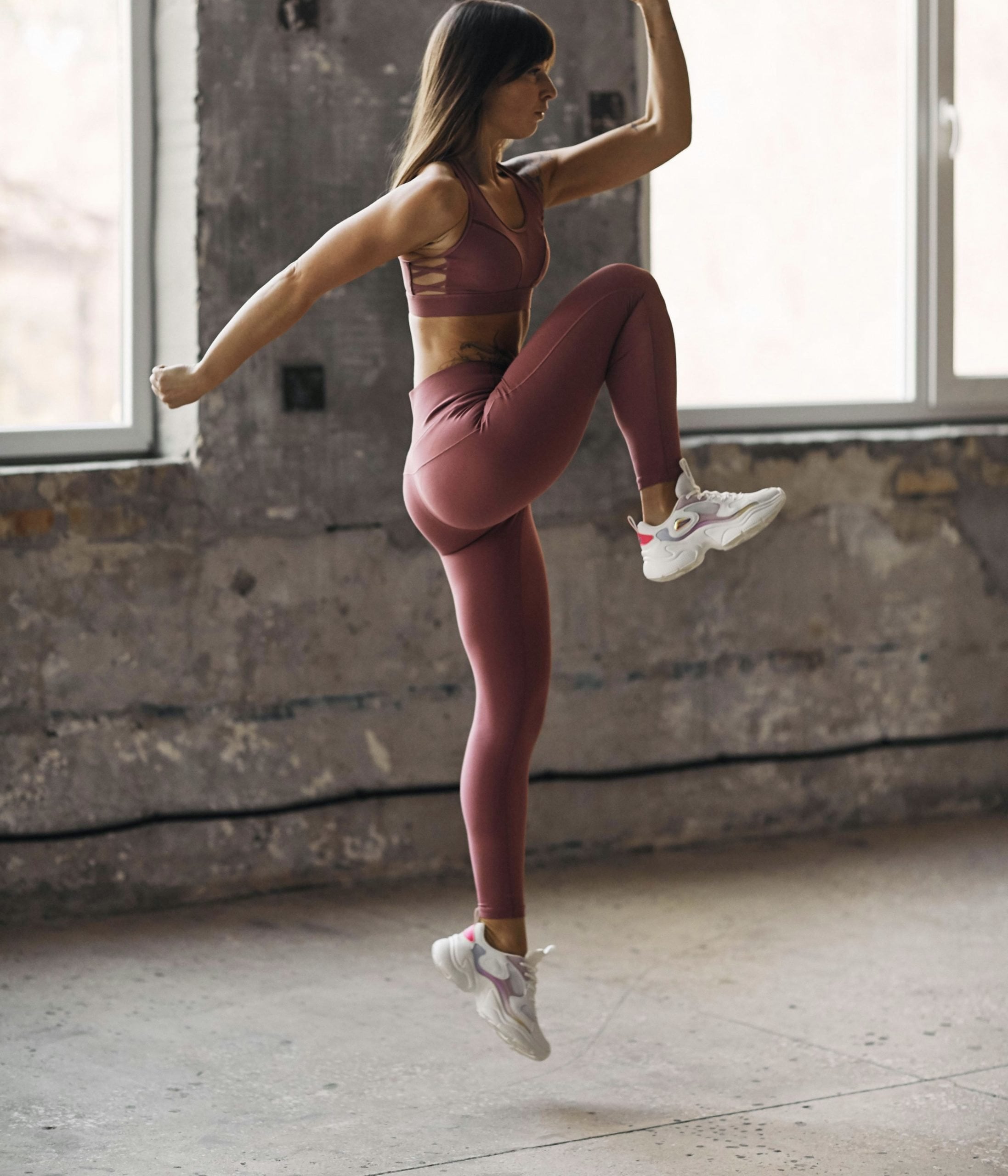
These 5 Evening Routines Will Help You Fall Asleep
This publication is also available in: Français
Deutsch
Italiano
Español
English (US)
A good night’s sleep is essential for good health.
However, not everyone falls asleep as soon as darkness sets in. On the contrary, anxiety due to Covid and our near-universal habit of scrolling through our phone screens with red eyes have taken a toll on our sleep. As demonstrated by the Ifop study on the French relationship with their bed, ⅓ of us experience sleep disorders.
Falling asleep quickly thus seems like a sweet dream…inaccessible for 29% of the population.
But far from being an end, insomnia can be corrected or at least diminished.
The secret to achieving this? Establishing evening routines. But not just any routines, healthy habits designed for relaxation and calm, which, when ritualized, allow you to fall asleep quickly.
Optimize your bed comfort to avoid insomnia
Choosing good bedding will positively impact your sleep.
And it starts with a good mattress. A good mattress provides adequate support for the body, reduces pressure points, promotes spinal alignment, and alleviates joint pain. It also contributes to more peaceful sleep, better body temperature regulation, and greater durability. To achieve this, make sure to choose a high-quality mattress that is also large enough if you share your bed. The 140×190 mattress is the most popular choice.
Also, consider your pillow. Make sure it supports your neck and head well. This will prevent neck and shoulder tension. Choose a silk pillowcase; besides being soft, it has very interesting properties for your hair and skin!
Disconnect from screens 1 hour before going to sleep
A little Netflix and off to bed.
Except that the movie session often comes with an extra hour of scrolling through social media. And when it’s time to sleep, our slumber escapes us. Adopting a screen-free routine before bed can greatly improve the quality of sleep. Screens, such as TVs, smartphones, and tablets, emit blue light that disrupts our internal clock and inhibits the production of melatonin, the hormone responsible for sleep regulation. By staying away from screens at least an hour before bed, we allow our brain to relax and prepare for rest.
Moreover, establishing a screen-free routine before bed can take various forms.
You can, for example, place your phone in a box once you get home. Read a book, write, do a puzzle, listen to music, etc.
By establishing a regular routine and avoiding screens before bed, you maximize your chances of improving sleep quality and waking up fresher and more rested the next morning.
Ritualize your bedtime by creating a relaxing atmosphere
To promote sleep, it’s advised to be relaxed, as adopting this posture sends a signal to the brain that both the body and mind are ready to rest. And for this to happen, it’s good to set the right conditions, namely a relaxed atmosphere.
For this, you can get into the habit of being in a dimly lit room, lighting a candle, playing soft music, and diffusing essential oils like lavender for its soothing properties or chamomile for its calming properties.
The idea? To feel like you’re in a healthy place where well-being and letting go guide your actions. In such an atmosphere, you would feel relaxed. Which for falling asleep is essential.

Evening routine for sleep: taking care of yourself with delicate gestures
Taking care of yourself before going to bed is another evening routine that will inevitably help you sleep better.
Setting aside a moment to pamper yourself, taking care of your skin, applying skincare products, and self-massaging is a way to promote relaxation and thus create conditions conducive to sleep.
Before going to bed, head to the bathroom, apply your night cream, and do a session of face yoga by massaging targeted areas. This will help your face relax, smooth your features, and revitalize your skin. Practiced mindfully, these gestures will take you to a timeless, very pleasant, and relaxing moment. To enhance the experience, place a warm towel on your face and apply your night serum as part of your evening skincare routine. In short, recreate the spa experience at home.
Practice breathing to fall asleep quickly
Bedtime is a moment when stress and anxiety can arise for some people. Because when we’re inactive, that’s when the mind wanders. It can then focus on our problems, doubts, or fears, preventing us from falling asleep. A tip to combat insomnia? Practice breathing.
By focusing on slow, deep, and regular breathing, we activate our parasympathetic nervous system, which promotes relaxation and calm. Slowing our breathing rate sends a signal to our brain that it’s time to relax and prepare for rest. This can reduce cortisol levels, the stress hormone, and stimulate the release of neurotransmitters such as serotonin and dopamine, which promote feelings of well-being and drowsiness.
Also, focusing on breathing helps divert attention from stressful or intrusive thoughts, calming the mind and facilitating sleep.
By regularly practicing breathing exercises, such as abdominal breathing or heart coherence before bed, you can create a state conducive to deep and restorative sleep.
Investing in a good mattress and quality bedding, staying away from screens, taking care of your body and mind, and practicing breathing… These habits, when woven into a thoughtful evening routine, lay the foundation for restorative sleep. For those who find solace in the calm of the evening, even purposeful activities like audio typing remote jobs can seamlessly blend into this refined routine, offering both serenity and a sense of fulfillment. By crafting a serene atmosphere and embracing calming rituals, you not only create the conditions for relaxation but also transform your nights into moments of genuine restfulness. With consistency, these small yet meaningful changes can help you leave insomnia behind and finally fall asleep with ease.



